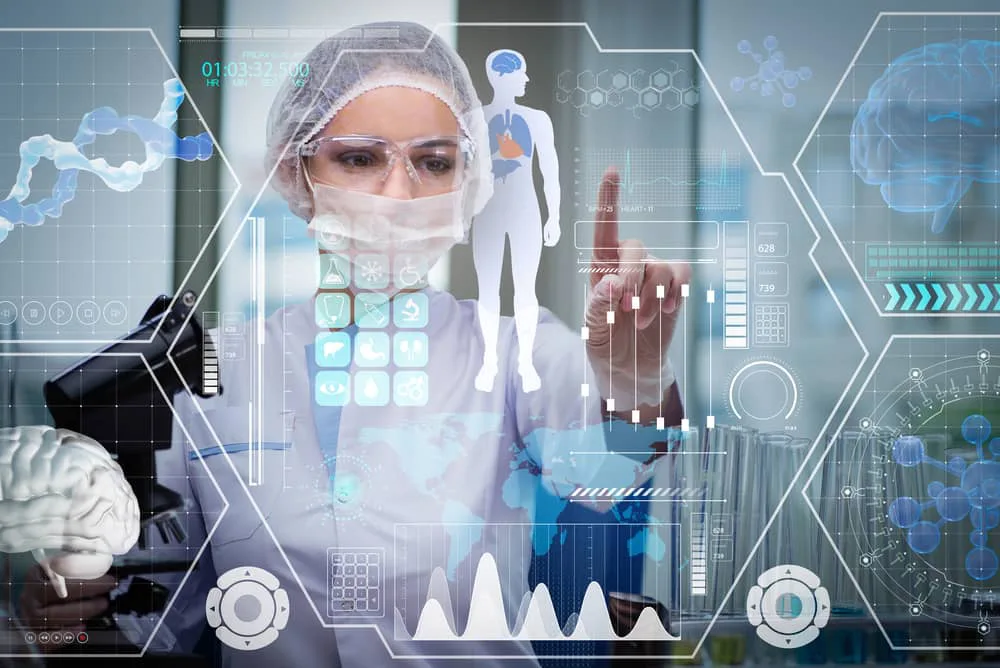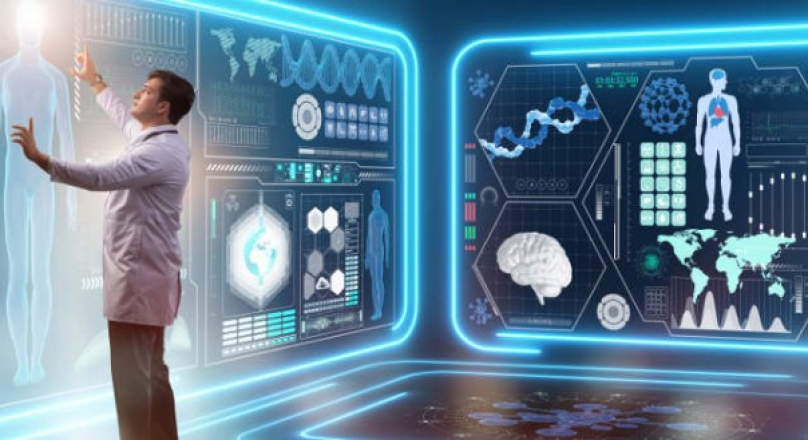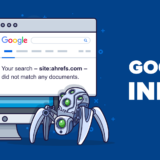10 Ways AI is Revolutionizing Healthcare Sectors
Artificial Intelligence (AI) is now everywhere and now it is revolutionizing the healthcare industry. With its ability to analyze vast amounts of data, detect patterns, and make predictions, AI is transforming various aspects of healthcare, from diagnosis and treatment to medicine discovery and administration. This article explores ten significant ways in which AI is reshaping healthcare and saving lives. By streamlining patient diagnosis, enhancing medical imaging, improving patient monitoring, revolutionizing medicine discovery, enabling precision medicine, transforming healthcare administration, and addressing ethical concerns, AI is paving the way for more efficient, accurate, and personalized healthcare delivery.
1. Introduction: The Rise of Artificial Intelligence in Healthcare
Understanding the Role of AI in Healthcare
Artificial Intelligence (AI) is no longer just a concept from science fiction movies – it’s revolutionizing the healthcare industry. In healthcare, AI is being used to streamline processes, improve patient outcomes, and save lives.
The Potential Benefits of AI in Saving Lives
AI can help healthcare professionals make more accurate diagnoses, develop personalized treatment plans, and even predict disease outbreaks. By analyzing large amounts of medical data, AI algorithms can identify patterns and trends that humans may not be able to detect. This not only leads to better patient outcomes but also saves valuable time and resources.

2. Streamlining Patient Diagnosis and Treatment with AI
AI-powered Diagnostic Tools for Efficient Disease Detection
With the help of AI-powered diagnostic tools, healthcare providers can detect diseases more efficiently and accurately. AI algorithms can analyze medical images, such as X-rays and MRIs, to identify abnormalities that may indicate the presence of a disease. This can lead to earlier detection, faster treatment initiation, and improved patient outcomes.
Improving Treatment Planning and Decision-Making with AI Algorithms
AI algorithms are also being used to assist healthcare professionals in treatment planning and decision-making. By analyzing patient data and comparing it with a vast database of medical knowledge, AI can suggest personalized treatment options and predict the effectiveness of different interventions. This not only helps doctors make more informed decisions but also increases the chances of successful outcomes for patients.
3. Enhancing Medical Imaging and Radiology through AI Technology
Automating Image Analysis for Faster and Accurate Diagnoses
AI technology is revolutionizing medical imaging and radiology by automating image analysis. Instead of relying solely on radiologists to interpret images, AI algorithms can quickly analyze medical images and highlight potential areas of concern.
Using AI to Identify Patterns and Early Signs of Diseases in Medical Images
AI is proving to be a valuable tool in identifying patterns and early signs of diseases in medical images. By training AI algorithms on large datasets, they can learn to recognize subtle changes and abnormalities that may be indicative of a disease. This early detection can lead to timely interventions, better prognosis, and ultimately, save lives.
4. Improving Patient Monitoring and Care with AI-powered Devices
AI-enabled Wearable Devices for Remote Patient Monitoring
AI-powered wearable devices are transforming patient monitoring by providing real-time data and analysis outside traditional healthcare settings. These devices can continuously monitor vital signs, detect anomalies, and alert healthcare providers of any concerning changes. By enabling remote patient monitoring, AI-powered devices enhance patient care and allow for early intervention in case of emergencies.
Intelligent Hospital Systems for Enhanced Patient Safety and Care
AI is also being utilized in the development of intelligent hospital systems that enhance patient safety and care. AI algorithms can analyze various data sources, such as electronic health records and real-time patient monitoring, to identify potential risks and predict adverse events. This proactive approach enables healthcare providers to take preventive measures and improve patient outcomes.

5. Revolutionizing Medicine Discovery and Development with AI Algorithms
Accelerating Medicine Discovery Process through AI-assisted Screening
Finding the perfect medicine to treat a disease can sometimes feel like searching for a needle in a haystack. But AI algorithms are changing the game by speeding up the process of medicine discovery. With the help of machine learning and big data analysis, AI can quickly analyze vast amounts of data, including genetic information, medical records, and scientific literature, to identify potential medicine candidates. This not only saves time but also opens up new possibilities for finding effective treatments.
Optimizing Medicine Formulation and Dosage with AI-guided Techniques
Gone are the days of trial and error when it comes to formulating medicines and determining the right dosage. AI-guided techniques can analyze patient data and genetic information to customize medicine formulations and dosages for individual patients. Thanks to AI, finding the perfect balance in medicine formulation and dosage has become a whole lot smarter and more precise.

6. Enhancing Precision Medicine and Personalized Treatment through AI
Applying AI in Genomic Analysis for Tailored Treatment Plans
Genomic analysis plays a crucial role in precision medicine, where treatments are tailored to an individual’s unique genetic makeup. AI algorithms can analyze massive amounts of genomic data to identify specific genetic variations that may influence disease development and response to treatment. By leveraging AI in genomic analysis, healthcare professionals can develop personalized treatment plans that target the root causes of diseases, leading to more effective and targeted therapies.
Utilizing AI for Predictive Modeling and Treatment Outcome Optimization
Predicting how a patient will respond to a particular treatment is no longer just a guessing game. AI-powered predictive modeling can analyze patient data, treatment history, and outcomes to generate insights that help healthcare professionals optimize treatment plans. By harnessing the power of AI, medical experts can make informed decisions about the most appropriate course of action for each patient, ultimately improving treatment outcomes and saving lives.
7. Transforming Healthcare Administration and Operations with AI Systems
Automating Administrative Tasks through AI-based Solutions
Nobody likes dealing with paperwork and administrative tasks, especially healthcare professionals who would rather focus on patient care. That’s where AI comes in to save the day! AI-based solutions can automate mundane administrative tasks, such as appointment scheduling, billing, and record keeping, freeing up valuable time for healthcare providers to spend with their patients. With AI handling the paperwork, doctors and nurses can focus on what really matters: delivering top-notch care.
Optimizing Resource Allocation and Workflow Efficiency with AI
Managing resources and optimizing workflow in a healthcare setting can be complex, but AI systems are here to lend a hand. Armed with this information, healthcare administrators can make data-driven decisions to allocate resources more effectively, streamline processes, and improve overall operational efficiency.

8. Addressing Ethical and Privacy Concerns in AI-driven Healthcare Innovation
Ethical Considerations in AI Implementation for Healthcare
As AI continues to revolutionize healthcare, it’s important to keep ethical considerations at the forefront. Questions about data privacy, consent, and algorithm bias must be addressed to ensure AI is used responsibly and in the best interest of patients. By proactively addressing ethical concerns, healthcare organizations can build trust and ensure that AI-driven innovations are aligned with ethical standards and patient values.
Safeguarding Patient Privacy and Data Security in AI-driven Healthcare
With the increasing use of AI in healthcare, protecting patient privacy and data security becomes paramount. AI systems rely on vast amounts of sensitive patient information, and it’s crucial to implement robust security measures to safeguard this data. Encryption, access controls, and secure data storage are just a few ways that healthcare organizations can ensure patient information remains confidential and protected from unauthorized access. By prioritizing patient privacy and data security, AI-driven healthcare can thrive while maintaining trust in the system.In conclusion, the integration of artificial intelligence in healthcare is leading to a new era of possibilities and advancements. Through its implementation in various areas of healthcare, AI is improving patient outcomes, increasing efficiency, and ultimately saving lives. As this technology continues to evolve and innovate, the healthcare industry must embrace its potential while also addressing ethical considerations and ensuring data privacy. With AI as a powerful ally, we can look forward to a future where healthcare is more precise, accessible, and effective in meeting the needs of individuals around the world.
FAQ
1. How can AI improve patient diagnosis and treatment?
AI can enhance patient diagnosis and treatment by analyzing vast amounts of patient data, identifying patterns, and providing insights to healthcare professionals. This technology can assist in the early detection of diseases, improve accuracy in diagnoses, and suggest personalized treatment plans based on individual patient characteristics.
2. How does AI revolutionize medicine discovery and development?
AI algorithms can expedite the medicine discovery process by analyzing massive datasets and predicting the efficacy of potential compounds. This technology enables researchers to identify promising medicine candidates, optimize formulations, and accelerate the development of new treatments.
3. What ethical concerns arise with the use of AI in healthcare?
The use of AI in healthcare raises ethical concerns around privacy, data security, and the potential for bias. It is crucial to ensure that patient information is handled securely and that AI algorithms are developed and used in a transparent and unbiased manner to maintain trust and protect patient rights.
4. How can AI improve healthcare administration and operations?
AI can streamline healthcare administration by automating repetitive tasks, optimizing resource allocation, and improving workflow efficiency. This technology can help reduce administrative burden, minimize errors, and enhance overall operational effectiveness in healthcare facilities.
If you want to build your website in an affordable price contact: www.nextr.in
Read this: 10 Must-Have AI Tools For Every Tech-Savvy Entrepreneur


















